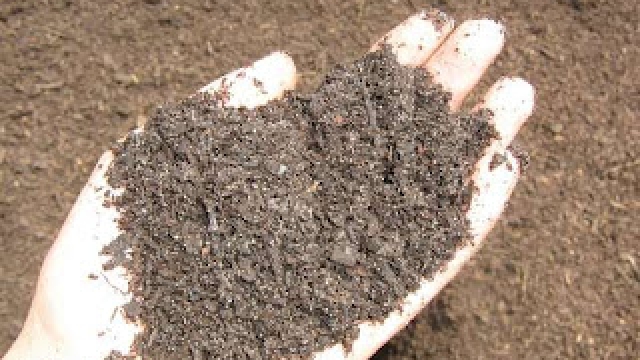Nature has always had a way of providing us with the tools we need to nurture and grow our plants and crops. Organic soils and fertilizers have emerged as a powerful force in revitalizing our agricultural practices without compromising the health of our planet or the quality of our food. As we navigate a world grappling with the consequences of chemical-based farming, organic alternatives present a promising solution that is both environmentally sustainable and highly effective. Harnessing the power of nature, organic soils and fertilizers offer a holistic approach to cultivating healthy plants and enriching our soils, ensuring a brighter, greener future for generations to come. Let’s explore the wonders of organic gardening and discover the transformative potential of these natural allies.
Benefits of Organic Soils
Improved Soil Structure
Organic soils, with their rich concentration of organic matter, provide numerous benefits for gardening and agriculture. One of the key advantages is the improvement in soil structure. Organic matter, such as compost or decomposed plant material, helps to create a crumbly and friable soil texture. This allows for better water retention, enhanced root development, and improved nutrient uptake by plants. The increased porosity of organic soils also promotes aeration, facilitating beneficial microbial activity within the soil.
Enhanced Nutrient Availability
Another notable benefit of using organic soils is the release of nutrients in a slow and steady manner. The natural decomposition process of organic matter supplies essential elements like nitrogen, phosphorus, and potassium to plants over an extended period. Unlike synthetic fertilizers that quickly dissolve and can lead to nutrient leaching, organic soils gradually release nutrients, ensuring a sustained supply for plant growth. This helps to promote healthier and more resilient plants, reducing the need for frequent applications of fertilizers.
Increased Soil Fertility
Organic soils contribute to long-term soil fertility. The organic matter present in these soils acts like a sponge, holding onto valuable nutrients and preventing them from being washed away from heavy rainfall or irrigation. Additionally, organic matter supports beneficial soil organisms, such as earthworms and beneficial bacteria, which help break down organic materials, release nutrients, and improve soil structure. As a result, organic soils foster a thriving ecosystem beneath the surface, nurturing healthy and vigorous plant growth.
Advantages of Organic Fertilizers
Organic fertilizers have gained significant popularity in recent years due to their numerous advantages. These fertilizers, derived from natural sources, offer several benefits for both plants and the environment.
Nutrient-rich and slow release: Organic fertilizers contain a wide range of essential nutrients that are vital for plant growth. They are usually composed of decomposed plant and animal matter, such as compost, manure, and bone meal. Unlike synthetic fertilizers, organic fertilizers release nutrients slowly over time, providing a steady and consistent supply of nourishment to plants.
Improves soil structure and fertility: One of the most significant advantages of organic fertilizers is their ability to enhance soil structure and fertility. These fertilizers contain organic matter that acts as a natural soil conditioner. As organic fertilizers break down, they improve the soil’s ability to retain water and nutrients, making it more suitable for plant growth. Furthermore, the presence of organic matter promotes beneficial microbial activity in the soil, which contributes to overall soil health.
Environmentally friendly: Organic fertilizers offer an eco-friendly alternative to synthetic fertilizers. They are derived from natural sources and do not contain harmful chemicals, making them safer for the environment. Additionally, the use of organic fertilizers helps reduce pollution and nutrient runoff. By promoting sustainable farming practices, organic fertilizers contribute to the preservation of biodiversity and ecosystem health.
late summer vegetable planting zone 6
In conclusion, organic fertilizers provide several advantages that make them a popular choice among gardeners and farmers alike. Their nutrient-rich composition, ability to improve soil fertility, and environmentally friendly nature make them a valuable tool for nurturing nature and promoting sustainable agriculture practices.
How to Utilize Organic Soil and Fertilizers
Start by preparing your planting area. Clear away any weeds, rocks, or debris, and make sure the soil is loose and well-drained. This will help the organic fertilizer and soil amendments penetrate the ground more effectively.
Choose the right organic fertilizer for your specific needs. Whether you’re growing vegetables, flowers, or herbs, there are various types of organic fertilizers available, such as compost, manure, bone meal, and fish emulsion. Consider factors like nutrient content, release rate, and preferred application method when making your selection.
Apply the organic fertilizer according to the instructions on the package. Remember that organic fertilizers are typically less concentrated than synthetic ones, so you may need to use a larger quantity. Distribute the fertilizer evenly across the soil, avoiding direct contact with plant stems or foliage.
Once you have applied the organic fertilizer, mix it into the top few inches of soil using a garden fork or a tiller. This will help incorporate the nutrients into the soil and enhance their availability to plants. Take care not to over-till, as excessive disturbance can harm beneficial soil organisms.
After incorporating the organic fertilizer, water the soil thoroughly. This will help activate the nutrients and promote their uptake by plant roots. It’s important to maintain proper moisture levels in the soil, as organic fertilizers rely on microbial activity to break down and release their nutrients.
Monitor your plants’ growth and health regularly. Organic soils and fertilizers work gradually, providing long-term benefits to the soil ecosystem. Adjust your fertilization routine as needed, taking into account factors like plant nutrient deficiencies, pH balance, and seasonal requirements.
Remember that nurturing nature through organic soil and fertilizers requires patience and a holistic approach. By incorporating these sustainable practices into your gardening routine, you can promote healthy plant growth, protect the environment, and cultivate a vibrant ecosystem in your own backyard.


